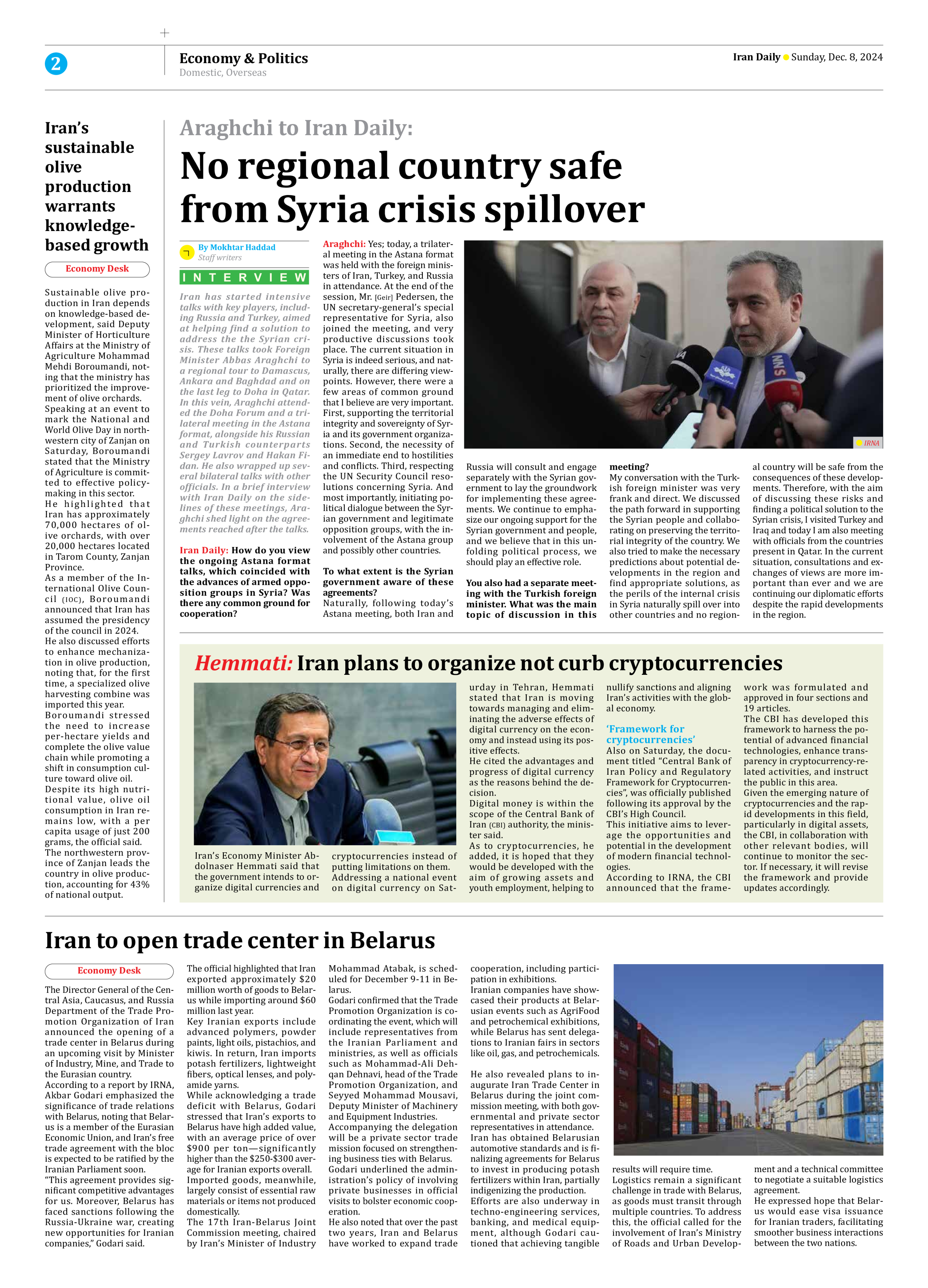
Araghchi to Iran Daily:
No regional country safe from Syria crisis spillover
By Mokhtar Haddad
Staff writers
Iran has started intensive talks with key players, including Russia and Turkey, aimed at helping find a solution to address the the Syrian crisis. These talks took Foreign Minister Abbas Araghchi to a regional tour to Damascus, Ankara and Baghdad and on the last leg to Doha in Qatar. In this vein, Araghchi attended the Doha Forum and a trilateral meeting in the Astana format, alongside his Russian and Turkish counterparts Sergey Lavrov and Hakan Fidan. He also wrapped up several bilateral talks with other officials. In a brief interview with Iran Daily on the sidelines of these meetings, Araghchi shed light on the agreements reached after the talks.
Iran Daily: How do you view the ongoing Astana format talks, which coincided with the advances of armed opposition groups in Syria? Was there any common ground for cooperation?
Araghchi: Yes; today, a trilateral meeting in the Astana format was held with the foreign ministers of Iran, Turkey, and Russia in attendance. At the end of the session, Mr. [Geir] Pedersen, the UN secretary-general’s special representative for Syria, also joined the meeting, and very productive discussions took place. The current situation in Syria is indeed serious, and naturally, there are differing viewpoints. However, there were a few areas of common ground that I believe are very important. First, supporting the territorial integrity and sovereignty of Syria and its government organizations. Second, the necessity of an immediate end to hostilities and conflicts. Third, respecting the UN Security Council resolutions concerning Syria. And most importantly, initiating political dialogue between the Syrian government and legitimate opposition groups, with the involvement of the Astana group and possibly other countries.
To what extent is the Syrian government aware of these agreements?
Naturally, following today’s Astana meeting, both Iran and Russia will consult and engage separately with the Syrian government to lay the groundwork for implementing these agreements. We continue to emphasize our ongoing support for the Syrian government and people, and we believe that in this unfolding political process, we should play an effective role.
You also had a separate meeting with the Turkish foreign minister. What was the main topic of discussion in this meeting?
My conversation with the Turkish foreign minister was very frank and direct. We discussed the path forward in supporting the Syrian people and collaborating on preserving the territorial integrity of the country. We also tried to make the necessary predictions about potential developments in the region and find appropriate solutions, as the perils of the internal crisis in Syria naturally spill over into other countries and no regional country will be safe from the consequences of these developments. Therefore, with the aim of discussing these risks and finding a political solution to the Syrian crisis, I visited Turkey and Iraq and today I am also meeting with officials from the countries present in Qatar. In the current situation, consultations and exchanges of views are more important than ever and we are continuing our diplomatic efforts despite the rapid developments in the region.







